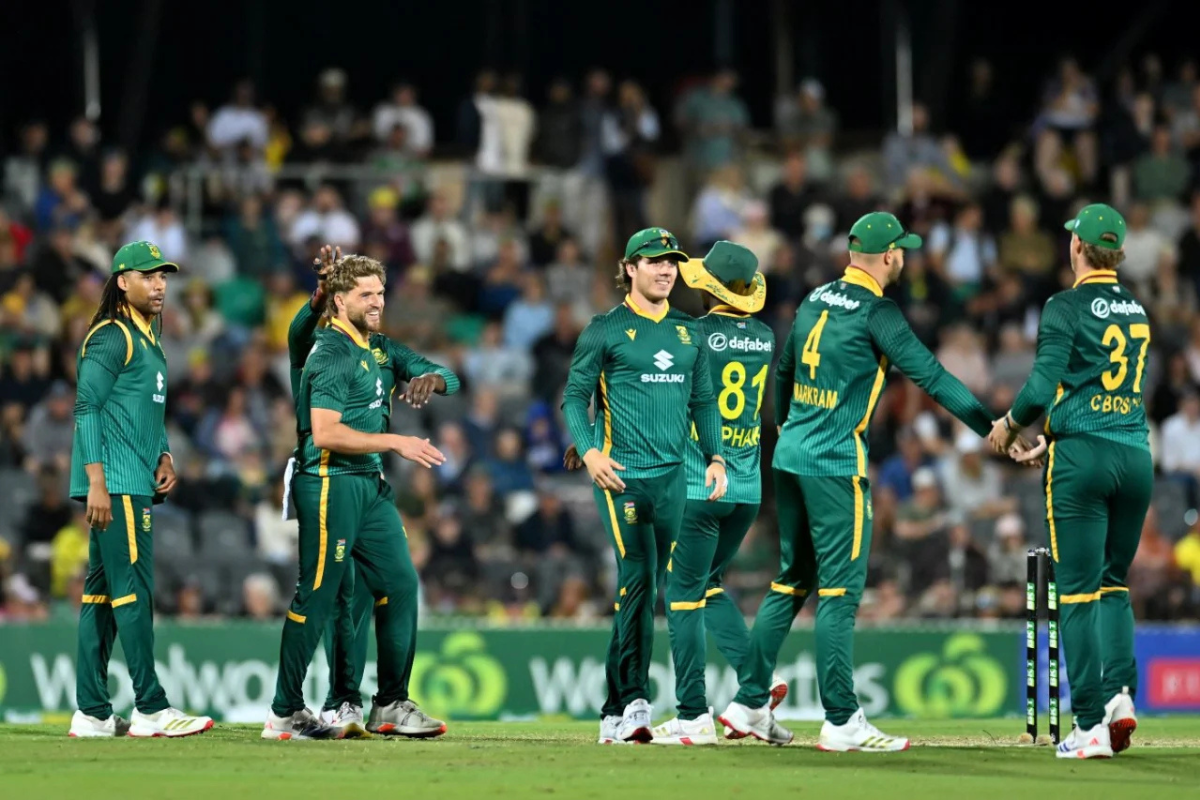
South Africa are coming on the back of an ODI series win against Australia.

South Africa haven’t had a memorable last two years in ODI cricket, having lost to the Netherlands in the World Cup 2023 and suffered a series loss to Afghanistan in 2024. Their underwhelming performance continued in 2025, having lost the Tri-Series in Pakistan and suffered a semi-final exit from the Champions Trophy 2025. They returned to winning ways in the Zimbabwe series and then thrashed Australia in their den.
The change in South Africa’s fortunes in ODI cricket came after the Proteas batters adopted the fearless and aggressive approach. The visitors displayed an attacking approach in the recently concluded three-match ODI series against Australia Down Under, which they won by 2-1. South Africa had won the series, winning the first two games, but the visitors made significant changes to the dead rubber, a move that saw them facing their biggest defeat in terms of runs.
Their newly adopted approach helped the Proteas to put pressure on Australia’s relatively inexperienced bowling attack and put up strong totals on the board on a tricky pitch. In the series, the batters amassed 707 runs across three matches at a strike rate of 94.89. Their batters didn’t care how many wickets they lost and played their shots without thinking about anything, aiming to maintain the higher strike rate. As a result, they posted 296 and 277-run totals in the first two matches, where the hosts failed to cross the 200-run mark.
While South Africa saw batters scoring five individual fifties, none managed to convert them into a hundred. Matthew Breetzke, who scored two half-centuries in as many matches, was caught on the deep when he was just 12 runs short of his second hundred. The Proteas hit a whopping 50 fours and seven sixes in the three-match series on big grounds in Australia.
ALSO READ:
Now, despite suffering their largest defeat, South Africa’s batting coach Ashwell Prince backed his players to show similar intent in the upcoming ODI series against England, starting on 2 September. Prince further noted that runs on the board matter more than a personal landmark.
“Maybe a little bit disappointing that nobody went on to score a hundred,” Prince admitted. “But to be honest, the focus is more on making an impact. We don’t necessarily want somebody who’s in the 70s and 80s to have just a hundred in the back of his mind and sort of nurse himself towards that. We want to try and encourage, particularly those guys in that phase of the innings, that if they fancy it, they put their foot down. And sometimes they will go on to get a hundred. And if they don’t, if they bomb out, that’s the way the cookie crumbles.”
The batting coach explained that players are asked to find ways to score boundaries, especially before the final power play. South Africa’s philosophy is for every individual. Opener Ryan Rickelton, who is a naturally aggressive cricketer, has been searching for form since his comeback in the coloured jersey, but he continues to bat in an attacking way.
“Most of the communication is about trying to free people up,” Prince said. “Rickelton is naturally a positive player. But if anything, from Shuk’s point of view, he might want a little bit more aggression. Sometimes it can take time for people to settle into that mindset and style of play. But we do encourage that.” “When we compare the two formats, when we have our meetings with the players, we try to illustrate that in the 50-over game, there is still an element of batsmanship, a little bit more like Test-match-type batting,” Prince explained.
The ODI series against England will commence on September 2 in Headingley. The second and third ODIs will be played at Lord’s and The Rose Bowl on September 4 and 7, respectively.
Temba Bavuma (c), Toni de Zorzi, Lungi Ngidi, Corbin Bosch, Keshav Maharaj, Lhuan-Dre Pretorius, Matthew Breetzke, Kwena Maphaka, Kagiso Rabada, Dewald Brevis, Aiden Markram, Ryan Rickelton, Nandre Burger, Wiaan Mulder, Tristan Stubbs, and Senuran Muthusamy.